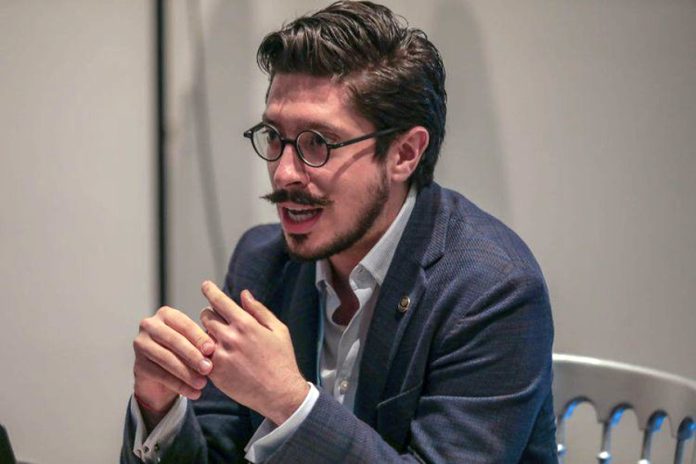Almost eight weeks have passed since Claudia Sheinbaum won Mexico’s presidential election in a landslide and a coalition led by the ruling Morena party secured a supermajority in the lower house of Congress and a large majority in the Senate.
Since then, the peso has depreciated, Morena has announced its intention to approve a controversial judicial reform once the recently-elected lawmakers assume their positions in September, Sheinbaum has sought to calm investors on repeated occasions, and the president-elect has announced virtually all of her cabinet appointments.
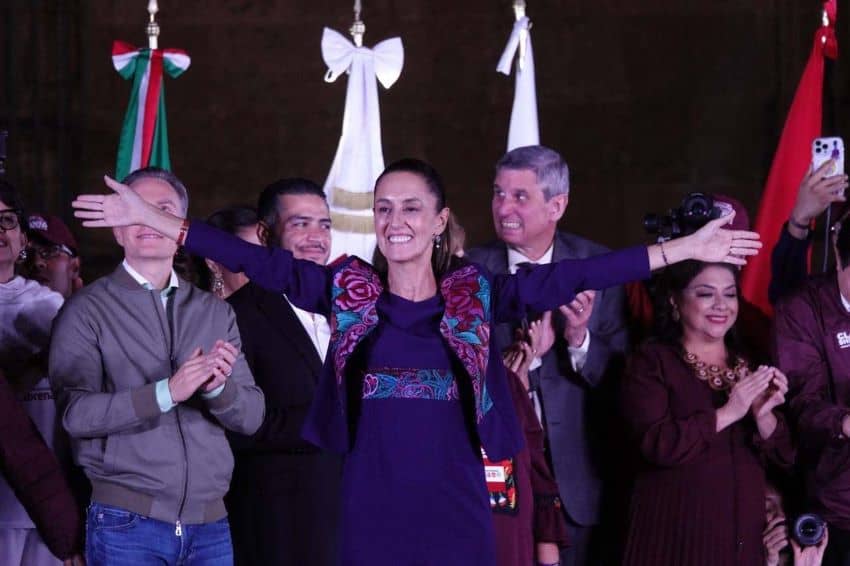
Mexico News Daily recently spoke to Pedro Casas Alatriste, executive vice president and CEO of the American Chamber of Commerce of Mexico (AmCham), to get his views on the election results, and the political and economic developments since June 2.
On the election results
Casas told MND that “AmCham is fiercely non-partisan, but not non-political,” and noted that the business organization he leads engaged with the teams of both Sheinbaum and opposition candidate Xóchitl Gálvez in the lead-up to the elections.
He also pointed out that AmCham has worked with administrations in both Mexico and the United States for more than 100 years.
“We see this like any other political change in history. We’re going to work with whoever is in government,” Casas said.
“With that being said we do believe that having absolute majorities and a lack of counterweights and checks and balances — regardless of who is in power — is something that makes people nervous,” he added.
On a positive note, the AmCham CEO said that he sees “an attitude of more open dialogue with the private sector” from members of Sheinbaum’s team.
That attitude has raised private sector hopes about the incoming government, Casas said.
“Nonetheless, everyone [in the private sector] is still adopting a wait-and-see attitude,” he added.
On Morena’s legislative agenda
President Andrés Manuel López Obrador sent numerous constitutional reform proposals to Congress in February, among which is one to overhaul Mexico’s judiciary.
Casas said that the government’s plan for the judiciary — which Sheinbaum also supports — is the most concerning of the reform proposals put forward by López Obrador.
There are a lot of aspects of the reform that “could potentially be positive,” but other aspects are “pretty harmful,” he said.
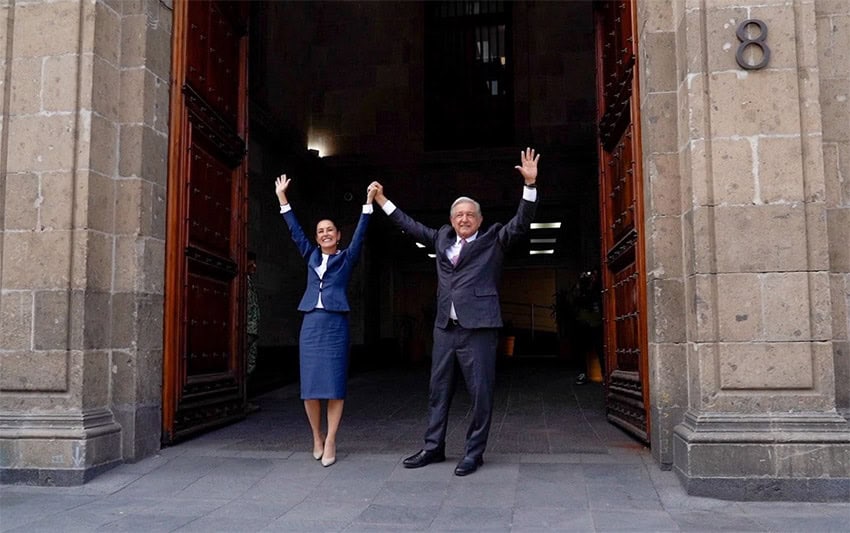
The most criticized aspect of the reform is that which would allow citizens to directly elect Supreme Court justices and other judges from candidates nominated by the president of the day.
Casas said that AmCham would seek to have a “proactive dialogue” about the reform with members of Congress and other stakeholders.
AmCham is “not against reforming the judicial power” per se, but it does have reservations about the government’s proposal in its current form, he said.
On Sheinbaum’s cabinet announcements
“Everyone has been quite positively surprised by the cabinet announcements,” Casas said, referring to appointments that include former foreign affairs minister Marcelo Ebrard as economy minister and current security minister Rosa Icela Rodríguez as interior minister.
The appointments provide certainty about what is going to happen during Sheinbaum’s administration, “at least for the first year or couple of years,” he said.
Casas said that each of the ministers appointed so far is “quite technical and savvy” in the area he or she will have responsibility for.
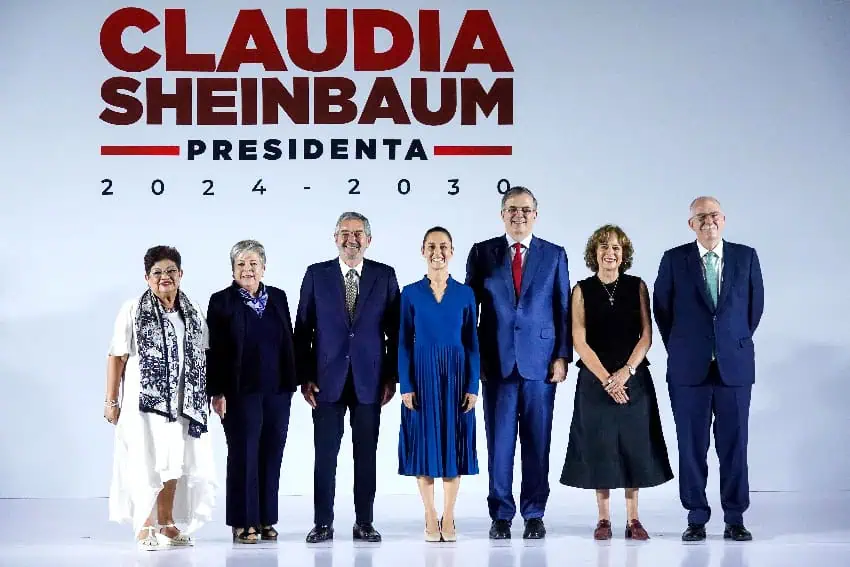
On the market’s reaction to the election results
“The market has become, probably now more than ever, part of that non-existent counterweight on the government,” Casas said, noting that there will be “a weakened opposition” to stand up to Morena party initiatives.
Both the Mexican peso and the Mexican stock exchange lost ground the day after the election. The peso remains well below its pre-election position against the US dollar.
Casas said that companies see the market as a potential constraint on some government initiatives. AmCham considers that likelihood “a positive,” he added.
On how Mexico can capitalize on the nearshoring opportunity
Casas said that more government investment is needed in infrastructure and the energy transition; that steps need to be taken to ensure that Mexico has the “right” human capital available; and that the government must guarantee security and rule of law in the country.
“They are the basics, the 101 [of what’s needed],” he said.
“But there are two big issues that are also very relevant,” Casas said.
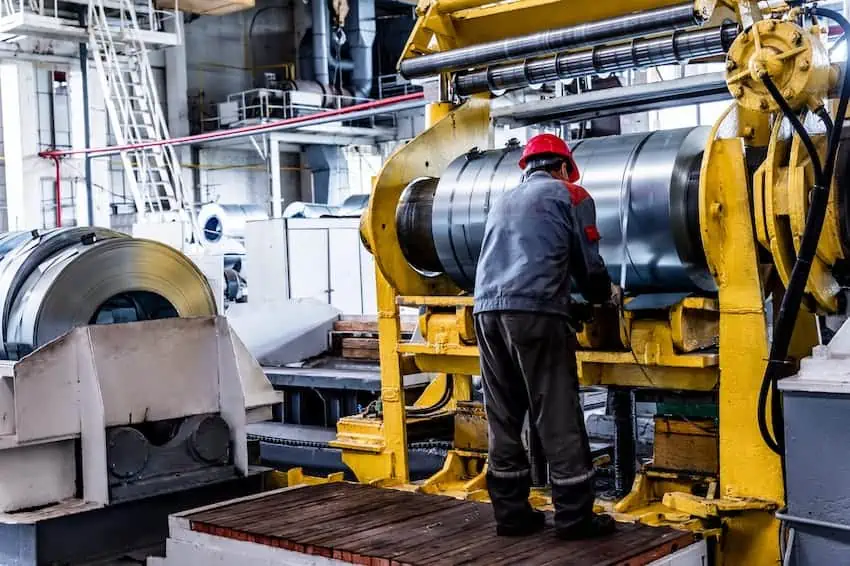
“One is incentives and having a more proactive industrial policy, in terms of saying ‘we really want this to happen and this is how we’re going to support it,'” he said.
“From this administration, we’ve had nothing, absolutely nothing,” said Casas, who suggested that nearshoring-focused tax incentives announced by the federal government late last year won’t have any significant impact on attracting nearshoring investment.
“We really need to have a national … and [even] regional, hemispheric strategy, … which has to be accompanied by the second thing — a truly serious investment promotion strategy,” he said.
Casas was critical of the current government’s decision to shut down the international trade and investment agency ProMéxico, describing it as a “deadly mistake.”
One consequence of the error, he said, is that only 3% of foreign direct investment (FDI) in Mexico in the first quarter of 2024 was “new investment.”
“Nobody is going out and saying, ‘Hey guys, this is the place to invest,'” Casas said.
“For me, that … [low level of new investment] makes the story very clear … and that’s what we should be addressing as a country,” he said.
If Mexico can add significant amounts of “new investment” to the already high levels of “reinvestment of profits” — which accounted for 97% of FDI between January and March – “then we’re really going to be talking about a massive change in the Mexican economy,” Casas said.
“That’s what we should be aiming for,” he added.
Pedro Casas spoke with Mexico News Daily chief staff writer Peter Davies and Mexico News Daily CEO Travis Bembenek
